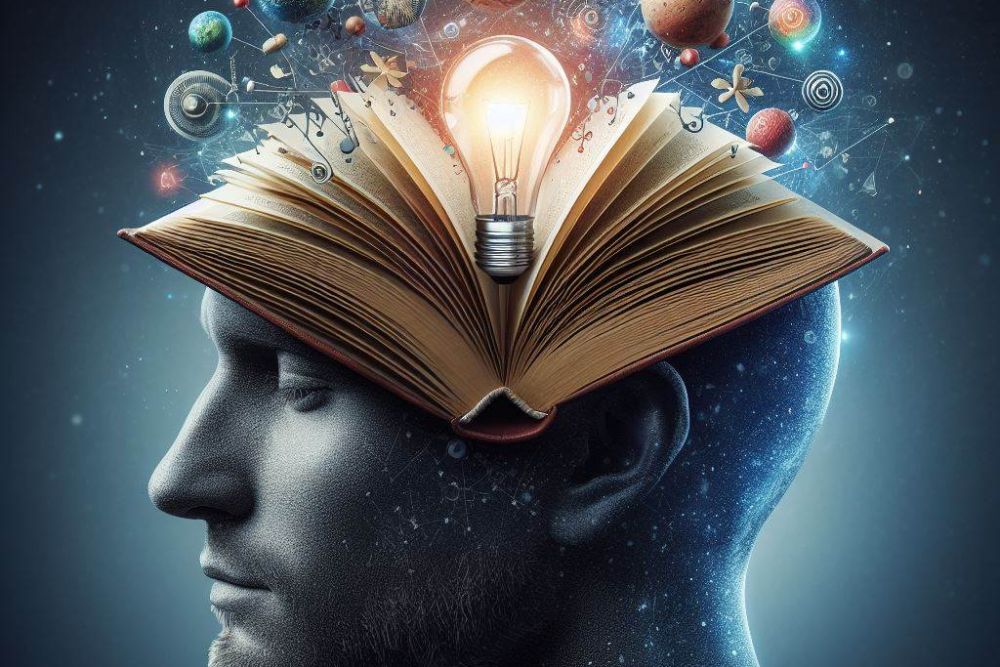Rekindle your creative spark with the following creativity books! From practical exercises to inspiring stories, these reads will help guide you to new heights.
The curated list of the best creativity books below is your toolbox for reigniting your inner genius. Packed with practical exercises, thought-provoking ideas, and inspiring stories, they should get your creative juices flowing again.
Highlights
- Unleash your inner artist and overcome creative roadblocks: This article explores publications that guide you on a journey of self-discovery, like “The Artist’s Way” and “The War of Art,” while also offering practical tools and strategies for generating ideas, like “Steal Like an Artist” and “Creative Confidence.”
- Boost your creative thinking and problem-solving: Dive into the science behind creativity with reads such as “Thinking, Fast and Slow” and “The Creativity Code,” while unlocking new perspectives with “Creative Mind” and “Six Thinking Hats.”
- Bring your ideas to life: Learn from successful creatives with “Big Magic,” “Show Your Work!,” and “Creativity, Inc.,” and discover practices to maintain a creative flow through books like “The Creative Habit” and “Flow.”
The Artist’s Way
Author: Julia Cameron
Progress, not perfection, is what we should be asking of ourselves.

A pivotal work in the realm of creativity, “The Artist’s Way” by Julia Cameron is lauded for its structured approach and profound insights. The book revolves around a 12-week program meticulously designed to guide readers through a transformative journey of self-discovery and creative awakening. One of its standout practices, the notion of “morning pages,” encourages readers to engage in the ritual of stream-of-consciousness writing each morning – so as to declutter the mind and ignite creative sparks.
Central to Cameron’s philosophy is the concept of artistic recovery, a process the author contends is essential for unearthing one’s dormant creative essence buried beneath layers of doubt and societal pressures. Through a lens of spirituality, Cameron intertwines the act of creation with a higher purpose, framing the pursuit of creativity as a deeply introspective and potentially transcendent endeavor. Woven throughout the book are her own anecdotes and experiences from her artistic journey, which underscore the transformative potential of embracing one’s creative impulses.
While “The Artist’s Way” primarily targets artists, its principles resonate with anyone seeking to cultivate creativity in both personal and professional domains.
Read more: 25 Best Spiritual Books to Read – A List for Every Seeker
The Creative Act: A Way of Being
Author: Rick Rubin
If you have an idea you’re excited about and you don’t bring it to life, it’s not uncommon for the idea to find its voice through another maker. This isn’t because the other artist stole your idea, but because the idea’s time has come.

Drawing from his extensive background as a revered music producer, Rubin infuses his book with a wealth of insights into the creative process. Through a philosophical lens honed over decades of artistic endeavors, the author distills his wisdom into a narrative that delves deep into the essence of creativity, transcending mere techniques to illuminate the interconnectedness between art and the human experience.
Beyond mere theoretical musings, “The Creative Act: A Way of Being” offers tangible guidance for navigating the creative landscape. It advocates for a blend of curiosity, action, and enjoyment in the pursuit of artistic endeavors. With an inspirational tone permeating its pages, the book urges readers to shed self-imposed limitations and embrace the boundless potential inherent in every creative undertaking.
While some critics have noted a desire for more personal anecdotes to enrich the narrative, Rubin’s book nevertheless stands as a captivating testament to the transformative power of creativity.
Steal Like an Artist
Author: Austin Kleon
If we’re free from the burden of trying to be completely original, we can stop trying to make something out of nothing, and we can embrace influence instead of running away from it.

“Steal Like an Artist” is known for its accessible and pragmatic approach to nurturing creative expression. Its narrative is based on the author’s empowering assertion that creativity is not the domain of geniuses – but rather a birthright accessible to anyone who dares to embrace their authentic selves.
Beyond mere ideology, “Steal Like an Artist” equips readers with a treasure trove of practical insights and actionable strategies aimed at catalyzing creative endeavors. With its visually engaging layout and illustrative content, the book transcends traditional boundaries, captivating a diverse audience ranging from seasoned professionals to budding creatives with its accessible and digestible format.
By advocating for the synthesis of diverse influences and the cultivation of creative routines, “Steal Like an Artist” emboldens readers to harness the power of creativity as a force for personal and professional fulfillment.
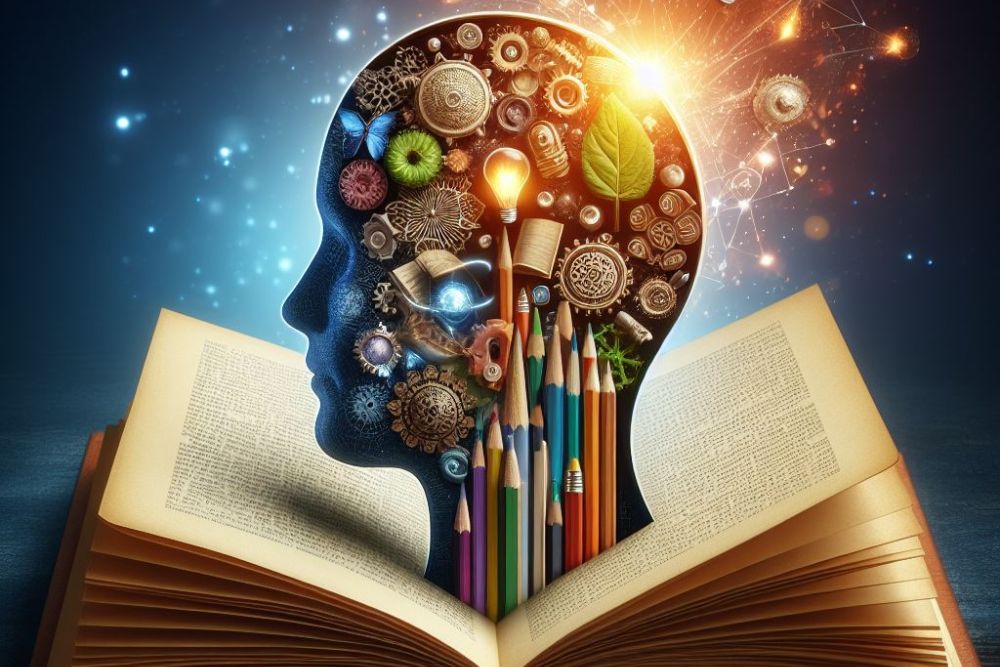
Best creativity books
Big Magic: Creative Living Beyond Fear
Author: Elizabeth Gilbert
The universe buries strange jewels deep within us all, and then stands back to see if we can find them.

Gilbert’s exploration of the enigmatic nature of inspiration serves as a rallying cry for readers to embrace curiosity and relinquish unnecessary suffering, which fosters a mindset conducive to creative expression. Through a delicate balance of soulful spirituality and pragmatic wisdom, the book serves as a guiding light for navigating the labyrinthine terrain of creative pursuits, thereby empowering readers to pursue their passions with fearless abandon.
At the heart of “Big Magic” lies Gilbert’s unwavering belief in the inherent treasures nestled within each individual; in other words, everyone is urged to embark on a quest to unearth their “strange jewels” and infuse their daily lives with mindfulness and fervor. The author’s conversational prose style renders the book accessible and engaging to a diverse audience – not just professional artists or writers.
Read more: 37 Spiritual Activities to Nurture the Soul
Making Ideas Happen
Author: Scott Belsky
An idea can only become a reality once it is broken down into organized, actionable elements.

“Making Ideas Happen” by Scott Belsky is revered for its insightful discourse on bridging the gap between conceptualization and realization. The book’s ethos is based on the notion that while ideation is ubiquitous, it is the capacity for execution that distinguishes triumphant creatives from mere dreamers. As such, Belsky advocates for a paradigm shift from idea generation to idea implementation – i.e. translating visions into actionable outcomes.
Drawing from his tenure at Behance, Belsky augments his discourse with insights gleaned from interactions with industry luminaries and innovators, thereby enriching the narrative with real-world wisdom and actionable advice. Furthermore, the book delves into the critical role of leadership and teamwork in the creative process – with guidance on how to foster collaboration and marshal collective efforts toward common objectives.
Thinking, Fast and Slow
Author: Daniel Kahneman
We can be blind to the obvious, and we are also blind to our blindness.

“Thinking, Fast and Slow” explores intricate mechanisms that govern human thought processes; it dissects the interplay between the intuitive, emotional System 1 and the deliberative, logical System 2. Through a lens of psychological insight, Kahneman introduces the cognitive biases and errors that pervade our decision-making. By unraveling the complexities of these dual systems, he equips readers with the tools to enhance their decision-making prowess – a skill paramount to creativity and innovation.
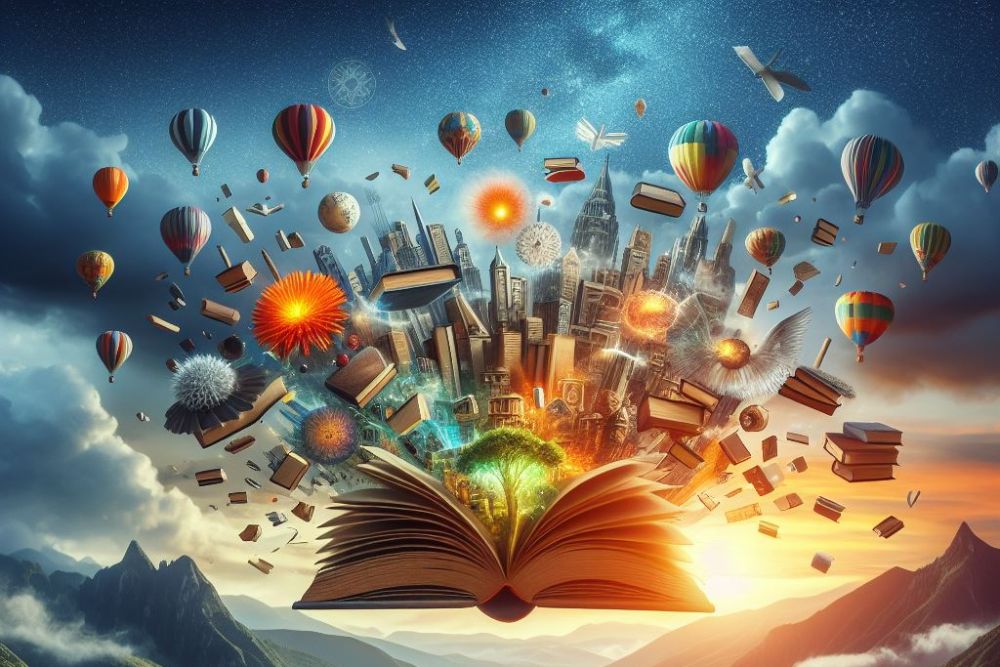
Best creativity books
Creative Mind
Author: Ernest Shurtleff Holmes
The creation of something new is not accomplished by the intellect but by the play instinct acting from inner necessity.

Through a tapestry of New Thought principles, Holmes elucidates the boundless creative power inherent within the human mind – plus how to harness this force to effect positive change and manifest personal aspirations. Within his work, he delves into the essence of the universe, intelligence, purpose, and order, thereby beckoning readers to tap into the wellspring of universal creativity that flows within and around them.
Despite the profundity of its themes, “Creative Mind” exudes a remarkable simplicity and clarity in its exposition, which renders its teachings accessible to a broad spectrum of readers. Holmes’s adeptness at distilling complex concepts into digestible nuggets of wisdom ensures that people from all walks of life can glean insights and apply them to their own creative endeavors.
Show Your Work!
Author: Austin Kleon
When you teach someone how to do your work, you are, in effect, generating more interest in your work. People feel closer to your work because you’re letting them in on what you know.

Celebrated for its accessible prose and transformative insights, “Show Your Work!” advocates for transparency and openness as catalysts for discovery and opportunity. Through a series of 10 guiding principles, such as “Share Something Small Every Day” and “Stick Around,” Kleon introduces actionable advice that can be leveraged to cultivate a culture of productivity and collaboration.
The book’s narrative places a strong emphasis on taking advantage of the power of community and networking in the digital age – not merely for self-promotion, but as a means of fostering meaningful connections and collective growth. Kleon advocates for an ecology of talent where creators support and learn from each other – in a symbiotic relationship that transcends mere networking. With vibrant illustrations, poignant quotes, and compelling anecdotes, his work captivates readers and makes for an enriching reading experience.
Creativity, Inc.
Authors: Edwin Catmull & Amy Wallace
You are not your idea, and if you identify too closely with your ideas, you will take offense when they are challenged.

As a tour de force in the realm of management literature, “Creativity, Inc.” offers a glimpse into the inner workings of one of the world’s most illustrious creative powerhouses – Pixar Animation Studios (Catmull was a co-founder of Pixar). The book delivers an insider’s perspective that authentically illuminates the intricacies of fostering creativity within organizational structures.
“Creativity, Inc.” is embedded with captivating stories behind Pixar’s iconic films – what has propelled the studio to heights of acclaim and success. Catmull’s candid reflections on Pixar’s journey, including the challenges faced, mistakes made, and lessons learned, imbue the narrative with a sense of depth and authenticity.

Best creativity books
Creative Confidence
Authors: Tom & David Kelley
That combination of thought and action defines creative confidence: the ability to come up with new ideas and the courage to try them out.

“Creative Confidence” challenges conventional wisdom by asserting that creativity is not the exclusive domain of a select few – but rather an inherent trait within everyone. Drawing from their extensive experience at IDEO and the Stanford d.school, the authors infuse the narrative with practical tools and strategies to unlock one’s latent creative potential and foster innovation in both personal and professional spheres.
Through a nuanced exploration of common barriers to creativity, such as the fear of failure and of the unknown, the Kelleys provide invaluable insights into overcoming these obstacles and embracing a mindset of curiosity and experimentation. The book is also enriched by inspirational anecdotes and real-world examples drawn from the authors’ illustrious careers, thereby offering tangible illustrations of how to approach and solve problems creatively.
With its potent blend of inspiration and practical guidance, the book serves as a roadmap for those seeking to unleash their creative potential and effect positive change in the world.
Fluid Concepts and Creative Analogies
Author: Douglas Hofstadter

Hofstadter’s exploration of the nexus of creativity, analogy, and computer modeling presents a glimpse into the intricacies of human thoughts. Delving deep into the realms of cognitive science, the book offers fresh perspectives on the workings of the mind, challenging conventional notions and illuminating the interplay between creativity and analogy.
While “Fluid Concepts and Creative Analogies” demands a degree of dedication from its readers, its comprehensive examination of artificial intelligence, cognitive science, and the creative process makes it a must-read for anyone seeking to expand their own horizons.
The Creativity Code
Author: Marcus Du Sautoy
Much modern art is no longer about the appreciation of an aesthetic and skill by the likes of Rembrandt or Leonardo, but rather the interesting message and perspective that the artist is revealing about our relationship to our world.

As a mathematics professor at Oxford University, Du Sautoy brings a unique interdisciplinary perspective to the table. Within his work, he weaves together diverse threads to present a holistic view of creativity through various lenses. Through thought-provoking inquiries, the book prompts readers to ponder the essence of creativity in the context of machine learning – as well as invites contemplation on the future trajectory of creativity in the digital age.
The main focus of “The Creativity Code” is the author’s exploration of whether artificial intelligence possesses the capacity for genuine creativity or merely replicates human creativity. The book introduces the Lovelace Test – a benchmark for machine creativity inspired by Ada Lovelace – that challenges machines to produce novel, surprising, and valuable creations beyond the comprehension of their programmers. On the other hand, it also analyzes current applications of AI across various creative domains – how technology has been reshaping art, music, and literature landscapes.

Best creativity books
The Art of Creative Thinking
Author: Rod Judkins
Creativity isn’t a switch that’s flicked on or off; it’s a way of seeing, engaging and responding to the world around you.

What sets this book apart is its diverse range of references, drawing from eclectic sources spanning from the avant-garde Dada Manifesto to the inner workings of Andy Warhol’s studio. Judkins’ ability to distill a lifetime of expertise into 90 succinct chapters imbues the book with practical wisdom and actionable insights that can be readily applied to one’s own creative pursuits.
Structured in a non-linear fashion, “The Art of Creative Thinking” treats readers to a rich understanding of the creative process, informed by real-world experience and scholarly rigor. The inclusion of inspirational anecdotes, such as the remarkable tale of a class where every student won a Nobel Prize, adds an extra layer of motivation that fuels readers’ aspirations and ignites their creative spark.
Read more: Design Thinking – How to Reframe Thought Patterns to Unlock Innovation
Thinkertoys: A Handbook of Creative-thinking Techniques
Author: Michael Michalko
Creators look at “what is” and “what can be” instead of “what is not.” Instead of excluding possibilities, creators include all possibilities, both real and imagined. They choose to interpret their own world and do not rely upon the interpretations of others.

“Thinkertoys: A Handbook of Creative-thinking Techniques” is characterized by its rich tapestry of diverse techniques catering to both linear and intuitive thinkers. Through engaging and thought-provoking exercises, Michalko invites readers to actively participate in honing their creative skills, transforming abstract concepts into tangible outcomes.
The Dark Side of Light Chasers
Author: Debbie Ford
All of your so-called faults, all the things which you don’t like about yourself are your greatest assets.

“The Dark Side of Light Chasers” by Debbie Ford offers a unique perspective on creativity by delving into the realm of the shadow self and its impact on personal authenticity. Through the concept of shadow work, Ford guides readers on a transformative journey of self-discovery – in which they are encouraged to confront and integrate the hidden aspects of their psyche. By embracing these darker facets, one may cultivate a deeper understanding of themselves, ultimately enhancing self-awareness and creative expression.
The author’s exploration of the shadow self’s psychological dimensions is drawn upon the teachings of the renowned Carl Jung. Through a series of stories and exercises, Ford empowers readers to not only recognize their hidden emotions – but also uncover the inherent gifts within them, thus unlocking new avenues for creativity and self-expression.
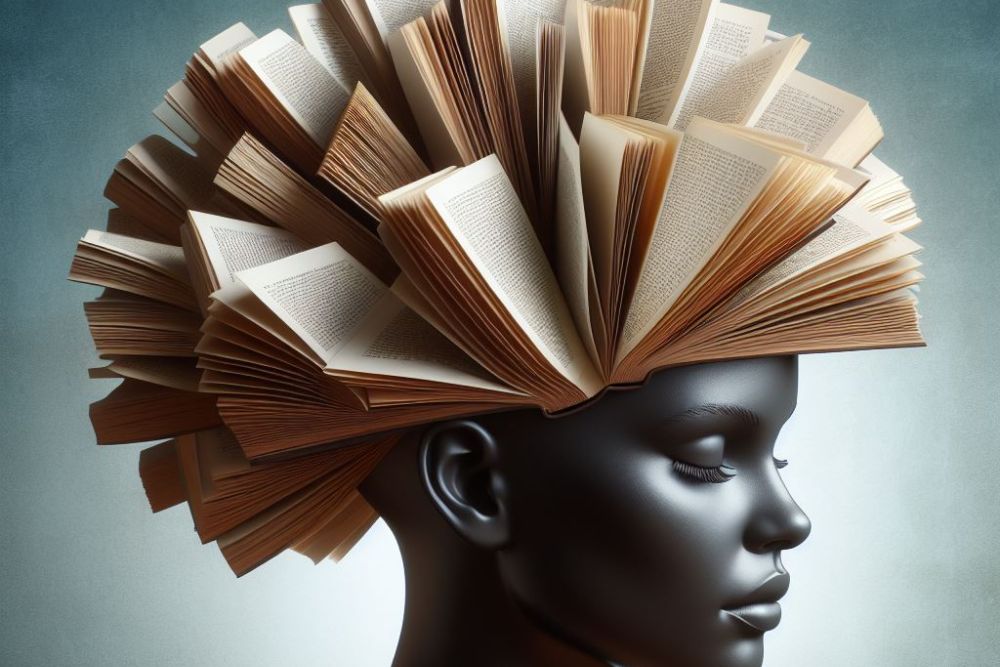
Best creativity books
Creative Illustration
Author: Andrew Loomis

Renowned for its exhaustive approach to teaching the craft of illustration, “Creative Illustration” covers foundational aspects like line, tone, color, and composition. Through practical tips, insider anecdotes, and mesmerizing illustrations, the book serves as a compass for those seeking to hone their illustration skills, regardless of their proficiency level.
While primarily tailored for professional-level illustrators, “Creative Illustration” remains accessible to beginners committed to their artistic development.
The Creative Habit
Author: Twyla Tharp
Reading, conversation, environment, culture, heroes, mentors, nature – all are lottery tickets for creativity. Scratch away at them and you’ll find out how big a prize you’ve won.

Within “The Creative Habit“, Tharp presents a list of over thirty practical exercises, which serve as poignant tools that guide one toward the cultivation of creative habits and the dissolution of creative blocks. As a luminary in the world of choreography, the author brings forth a wealth of expertise and firsthand experience, infusing the book with insights that resonate across diverse disciplines.
Beyond merely sharing her personal journey, Tharp also elucidates the essence of creativity – that it depends not solely on talent or inspiration, but also on one’s steadfast commitment to discipline and effort. While rooted in the realm of dance, the wisdom encapsulated within the book holds a universal appeal to artists, writers, entrepreneurs, and enthusiasts seeking to unlock their creative potential alike.
Creative Visualization
Author: Shakti Gawain
We always attract into our lives whatever we think about most, believe most strongly, expect on the deepest level, and imagine most vividly.

“Creative Visualization” is credited with introducing the transformative concept of harnessing mental imagery and affirmations to instigate positive change. Thanks to the author’s accessible prose, the intricate practices of visualization and affirmation are rendered comprehensible and actionable for a broad readership.
Renowned as one of the foundational works in this field, Gawain’s book has left an indelible mark that influences subsequent writers and practitioners. Through its pages, readers are equipped with practical techniques for utilizing creative visualization across diverse spheres of life – be it health, business endeavors, or personal development pursuits.

Best creativity books
The Rise of the Creative Class
Author: Richard Florida
If your culture is not such that it can accept difference, and uniqueness and oddity and eccentricity, you will not get high tech industry.

“The Rise of the Creative Class” is a seminal work that has significantly shaped our understanding of the interplay between creativity, economics, and societal dynamics. Its narrative is based on Florida’s innovative thesis, which proposes the emergence of a novel societal group, the ‘Creative Class,’ whose diverse professions contribute to reshaping various facets of the 21st-century landscape. From engineers to artists, this class is characterized by its focus on generating novel ideas and forms, exerting profound influences on the economy, geography, and workplace structures.
Delving into the nexus of cultural and economic shifts, Florida’s book sheds light on the transformative impact of creativity on urban landscapes and economic prosperity. Through detailed analyses spanning occupational, demographic, psychological, and economic dimensions, the author paints a comprehensive portrait of the Creative Class and its global significance – as well as urban planning strategies aimed at enhancing the ‘quality of place,’ which are vital for attracting and retaining creative talent and fostering innovation within communities.
Creative Dreaming
Author: Patricia Garfield

“Creative Dreaming” is notable for its provision of lucid and straightforward methods that empower readers to not only plan their dreams beforehand – but also exert control over them during the dream state and subsequently extract valuable lessons upon awakening. Within her work, Garfield underscores the transformative influence dreams can wield, not just within the realm of sleep but also in shaping one’s reality and creativity.
Grounded in practicality, “Creative Dreaming” is lauded for its meticulous attention to detail, as well as its comprehensive array of mental exercises designed to ignite one’s creative faculties. By enriching her narrative with cultural and historical perspectives, Garfield presents a panoramic view of dreaming practices across diverse societies and epochs, thereby painting a more vivid picture of this universal phenomenon.
Praised for its accessibility and depth, the book has earned its status as a timeless classic in the realms of both dream research and creativity. Whether one is a seasoned creative professional or an inquisitive individual intrigued by the mysteries of the subconscious, “Creative Dreaming” offers invaluable insights into leveraging the untapped reservoirs of the mind to foster innovation and personal growth.
Pour Your Heart Into It
Author: Howard Schultz
In this ever-changing society, the most powerful and enduring brands are built from the heart. They are real and sustainable. Their foundations are stronger because they are built with the strength of the human spirit, not an ad campaign. The companies that are lasting are those that are authentic.

Within his work, Schultz intertwines elements of personal memoir, business acumen, and inspirational leadership. Through the lens of his own journey and Starbucks’ evolution from a humble local coffee shop to a global powerhouse, the author imparts invaluable insights that resonate with readers across diverse interests, be it business, leadership, or creativity.
“Pour Your Heart Into It” presents an exploration of business principles and ethics, as Schultz delves into the foundational pillars that underpin Starbucks’ success. With a steadfast commitment to product excellence and employee satisfaction, the author illustrates how these core values serve as guiding beacons in navigating the complexities of the business landscape.
Beyond its business-centric narrative, “Pour Your Heart Into It” reflects on Starbucks’ broader cultural significance, thereby offering readers a nuanced understanding of how the brand’s ethos has reshaped not only the coffee industry – but also consumer culture and expectations at large.
Read more: 15 Best Business Memoirs to Ignite Your Spirit

Best creativity books
The Gift
Author: Lewis Hyde
When the gift moves in a circle its motion is beyond the control of the personal ego, and so each bearer must be a part of the group and each donation is an act of social faith.

“The Gift” by Lewis Hyde discusses the intricate dynamics between creativity and the act of giving, which transcend conventional notions of economic exchange. It delves into the concept of a gift economy, contrasting it with the pervasive market-driven ethos of contemporary society. Through nuanced reflections, Hyde elucidates the transformative power inherent in acts of giving and receiving – their capacity to foster community cohesion and stimulate creative expression amidst commercial commodification.
One of the book’s distinguishing features is its poignant defense of creativity within a cultural landscape dominated by commercial imperatives. Positioned as a rallying cry for artists, “The Gift” advocates for the intrinsic value of creative pursuits and their pivotal role in enriching societal discourse. Hyde’s narrative encourages readers to embrace their creative gifts as indispensable contributions to the collective human experience, rather than mere commodities within a market-driven paradigm.
The War of Art
Author: Steven Pressfield
We must do our work for its own sake, not for fortune or attention or applause.

“The War of Art” has garnered acclaim for its innovative perspective on the challenges encountered in one’s creative pursuits. The book is based on the concept of ‘Resistance,’ a formidable force that obstructs creative endeavors by instigating procrastination, self-doubt, and myriad distractions. Pressfield’s analysis illuminates the pervasive nature of Resistance and its detrimental impact on one’s ability to actualize their creative potential.
Part of the book’s appeal stems from its motivational tone, which inspires readers to confront Resistance head-on and cultivate discipline and resilience in their creative endeavors. Through a blend of practical advice and personal anecdotes, Pressfield imparts invaluable strategies for overcoming Resistance and committing to the pursuit of one’s passions. By sharing his own struggles, he infuses the narrative with a relatable authenticity that resonates deeply with readers – and inspires them to persevere in the face of adversity.
Structured into three distinct parts, “The War of Art” provides a comprehensive framework for understanding and combatting Resistance at every stage of the creative process. Whether grappling with self-doubt, procrastination, or fear of failure, one should find within the book practical tools and insights to navigate the internal battles of creativity and emerge successful.
Bird by Bird
Author: Anne Lamott
Writing and reading decrease our sense of isolation. They deepen and widen and expand our sense of life: they feed the soul.

Celebrated for its blend of practical wisdom and heartfelt storytelling, “Bird by Bird” has earned its place as a cherished companion for writers and creatives alike. Within her work, Lamott presents a detailed roadmap through the writing process – from initial drafts to the completion of a polished work. This comprehensive approach ensures that both novice and seasoned writers find valuable resources within its pages – and become empowered to navigate the creative journey with much more confidence.
What sets “Bird by Bird” apart is Lamott’s candid and relatable narrative style, infused with personal anecdotes and self-deprecating humor. Through her own experiences, she demystifies the writing process, transforming what could be a daunting endeavor into a relatable and engaging memoir.
Beyond its practical advice for writers, “Bird by Bird” also offers broader insights into life’s challenges and creative pursuits – making it a source of inspiration for anyone seeking to navigate the complexities of self-expression.

Best creativity books
Flow: The Psychology of Optimal Experience
Author: Mihaly Csikszentmihalyi
The purpose of the flow is to keep on flowing, not looking for a peak or utopia but staying in the flow. It is not a moving up but a continuous flowing; you move up to keep the flow going.

A foundational text in the realm of positive psychology, “Flow” introduces the concept of ‘flow’ – a state of heightened consciousness where one is fully immersed in activities that bring deep enjoyment and creativity. Csikszentmihalyi’s exploration illuminates how such experiences can be cultivated intentionally rather than left to chance – so as to unlock one’s true potential and discover lasting happiness.
Through the identification of eight key elements of enjoyment, such as clear goals, immediate feedback, and a sense of control, Csikszentmihalyi provides a framework to confront challenges, enhance concentration, and maximize one’s creative output. On the other hand, the book seamlessly integrates research from various fields, including psychology, personal development, and spirituality, thereby presenting a holistic picture of the pursuit of meaning, creativity, and peak performance.
Beyond its academic acclaim, “Flow” has transcended disciplinary boundaries to influence diverse fields such as education, business, and personal development. Its principles have found application in a multitude of contexts, making it an invaluable resource for anyone seeking to improve their quality of life and enhance their creative potential.
Read more: Meaning of Life Books – 15 Enlightening Reads to Illuminate Your Purpose
On Writing
Author: Stephen King
The scariest moment is always just before you start.

“On Writing” intertwines personal narrative with lessons on the art of writing. Through a combination of memoir and master class, King invites readers into the inner workings of his mind, sharing candid reflections on his own journey as a writer – while imparting practical wisdom garnered from decades of experience. This unique blend not only makes the book an engaging read but also offers a rare opportunity for aspiring writers to learn from one of the masters of the craft.
King’s advice is down-to-earth and easy to grasp, rooted in his own trials and triumphs as a writer. Throughout his work, readers may gain unprecedented access to the author’s creative process, from the inception of ideas to the polishing of prose. His honest reflections on his own writing journey, coupled with practical tips on grammar, plot development, and character building, provide a comprehensive roadmap for honing one’s craft.
Outliers
Author: Malcolm Gladwell
Practice isn’t the thing you do once you’re good. It’s the thing you do that makes you good.

Rather than subscribing to the typical narratives of success solely attributed to individual talent or hard work, Gladwell probes deeper into the nuanced factors that underpin extraordinary accomplishment. Through meticulous analysis, he unveils the interplay between cultural background, familial influences, generational legacies, and idiosyncratic life experiences – thereby presenting a fresh perspective on the dynamics of success.
Central to “Outliers” is Gladwell’s groundbreaking concept of the 10,000-Hour Rule, which posits that true mastery in any domain necessitates an investment of approximately 10,000 hours of deliberate practice. This notion has sparked widespread discourse and challenged conventional wisdom regarding the nature of talent and perseverance. Gladwell’s adept storytelling further enhances the book’s allure, as he skillfully interweaves captivating anecdotes of renowned figures and historical events to illustrate his overarching arguments.
More than just a traditional creativity book, its interdisciplinary approach, and profound insights render “Outliers” an indispensable resource for anyone seeking to cultivate a more expansive and enlightened perspective on the nature of achievement and excellence.
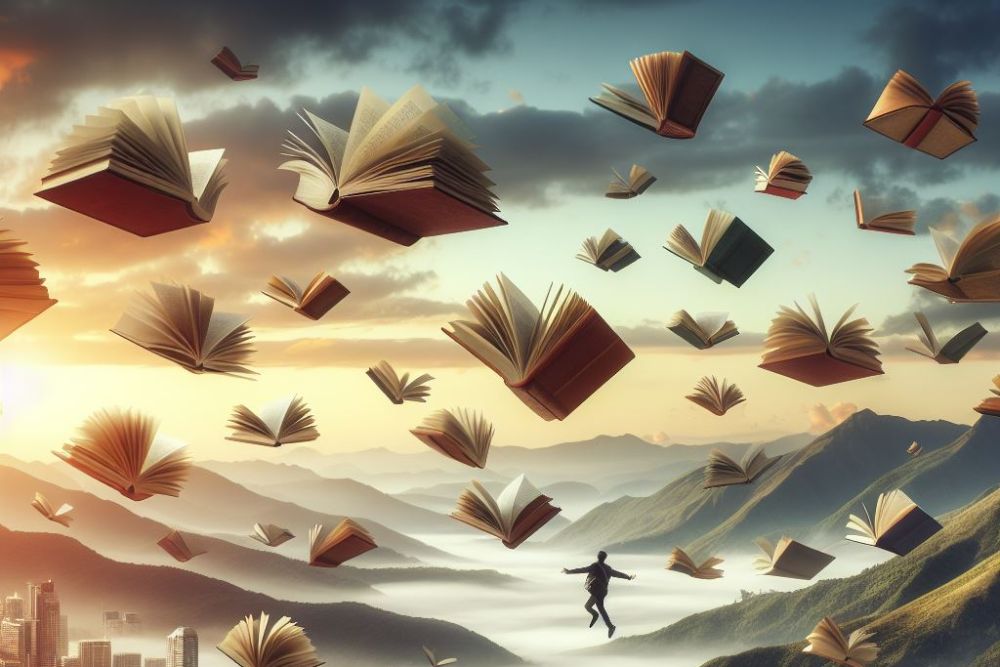
Best creativity books
Six Thinking Hats
Author: Edward de Bono
We may have a perfectly adequate way of doing something, but that does not mean there cannot be a better way. So we set out to find an alternative way. This is the basis of any improvement that is not fault correction or problem solving.

“Six Thinking Hats” is an influential guidebook that presents a robust strategy for navigating the complexities of decision-making and problem-solving. It is based on the innovative ‘Six Thinking Hats’ methodology, which serves as a structured framework for examining challenges from diverse angles, thereby fostering creativity and clarity in thought processes. The method’s effectiveness lies in its simplicity and practicality; as such, it can be readily implemented and consistently practiced for optimal results.
One of the book’s notable strengths is its ability to enhance communication and collaboration among individuals or within groups. By assigning distinct ‘hats’ to different modes of thinking, de Bono effectively streamlines discussions, enabling participants to engage in more focused and productive dialogues. This collaborative approach not only promotes a deeper understanding of complex issues – but also cultivates an environment conducive to innovative thinking and problem resolution across various domains, from business settings to educational contexts.
Quiet: The Power of Introverts in a World That Can’t Stop Talking
Author: Susan Cain
Whoever you are, bear in mind that appearance is not reality. Some people act like extroverts, but the effort costs them energy, authenticity, and even physical health. Others seem aloof or self-contained, but their inner landscapes are rich and full of drama. So the next time you see a person with a composed face and a soft voice, remember that inside her mind she might be solving an equation, composing a sonnet, designing a hat. She might, that is, be deploying the powers of quiet.

Cain’s “Quiet” has made a significant impact due to its comprehensive examination of introverted personality traits. Backed by meticulous research, the author provides profound insights into the strengths and challenges of introverts, as well as their unique qualities. By delving into the societal preference for extroversion, her analysis prompts readers to contemplate deeply ingrained cultural biases and their implications for individuals.
Through compelling real-life examples of successful introverts, Cain illustrates how embracing one’s quiet nature can lead to achievement across various domains. By challenging stereotypes and advocating for a shift in perception, she empowers introverts to embrace their identities fully and harness their inherent strengths for personal and professional success.
Japanese Creativity: Contemplations on Japanese Architecture
Author: Yūichirō Edagawa

“Japanese Creativity” offers a distinctive exploration of Japanese architectural style and its underlying creative principles. Through a meticulous analysis of architectural masterpieces spanning centuries, Edagawa delves into the essence of Japanese creativity – including the unique characteristics that define the nation’s architectural identity (from a deep reverence for nature to an appreciation for asymmetry and organic forms).
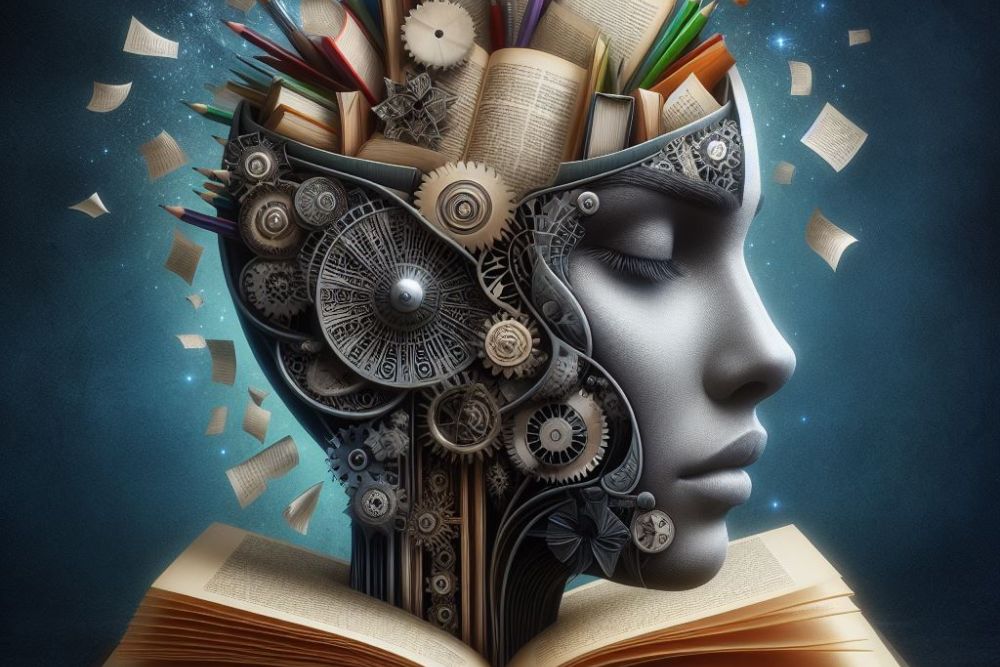
Best creativity books
Read more: 20 Japanese Philosophies of Life to Live by
Final Thoughts
Whether you’re a writer, artist, entrepreneur, or simply someone who wants to live a more imaginative life, there’s something on this list waiting to become your innovative compass! So, grab a cup of coffee, settle into a comfy chair, and let these creativity books unlock your potential and set you on the path to achieving amazing things!
Other resources you might be interested in:
- 20 Best Self-discovery Books: A Journey Within
- 10 Self-help Fiction Books to Rewrite Your Story
- 11 Best Coaching Books for Transformation & Success
- 250 Bucket List Ideas for Living Your Best Life
Let’s Tread the Path Together, Shall We?

